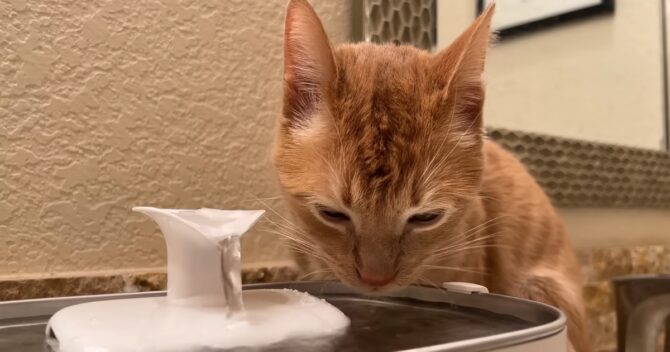Cats, with their mysterious behaviors and quirky personalities, often leave us pondering about their health and well-being. One question that has been circulating among all of us pet lovers and veterinarians alike is, “Can they have Down Syndrome?”
After doing thorough research and talking with experts, we offer you valuable insights into the causes, symptoms, and care associated with this condition.
Does It Occur in Cats?
Down Syndrome is a genetic disorder that affects humans, resulting from an extra chromosome 21. But can cats experience a similar condition?
While cats have been observed with physical deformities and developmental delays, it’s essential to understand that felines have a different chromosomal structure than humans.
They have 38 chromosomes, compared to our 46. Thus, the direct comparison of Down Syndrome in humans to cats is not scientifically accurate.
However, they can have genetic disorders or congenital disabilities that might resemble Down Syndrome symptoms in humans.
Causes of Genetic Disorders
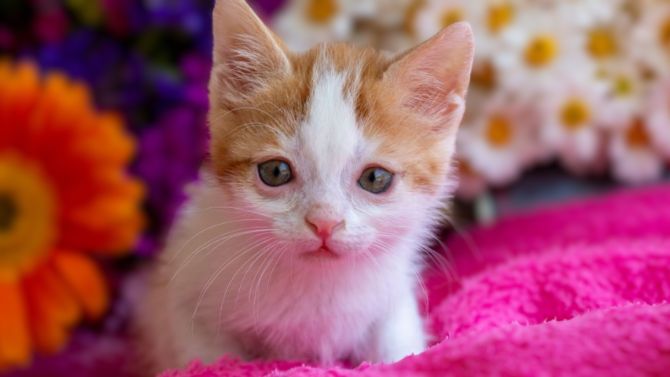
While cats cannot have Down Syndrome in the same way humans do, they can suffer from genetic disorders.
Genetic Mutations
Genetic mutations in cats can arise from various factors, including inbreeding, environmental influences, or random genetic changes.
Inbreeding, in particular, can lead to a higher chance of congenital disabilities as it reduces the genetic diversity in the offspring.
These mutations can result in physical and behavioral anomalies in the affected feline.
Environmental Factors and Congenital Disabilities
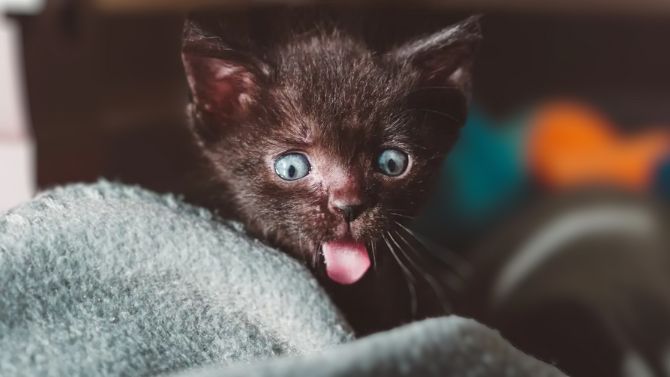
Environmental factors, such as exposure to harmful chemicals during pregnancy, can also lead to congenital disabilities in kittens.
For instance, if a pregnant cat is exposed to certain medications, toxins, or infections, it might increase the risk of the kittens having developmental issues or physical deformities.
Breeding Practices
Selective breeding can sometimes lead to the perpetuation of genetic disorders. Breeders aiming for specific physical traits might inadvertently select for genetic conditions tied to those traits.
It’s crucial for breeders to be aware of these potential pitfalls and for potential pet owners to research and choose responsible breeders.
Symptoms Resembling Down Syndrome in Cats
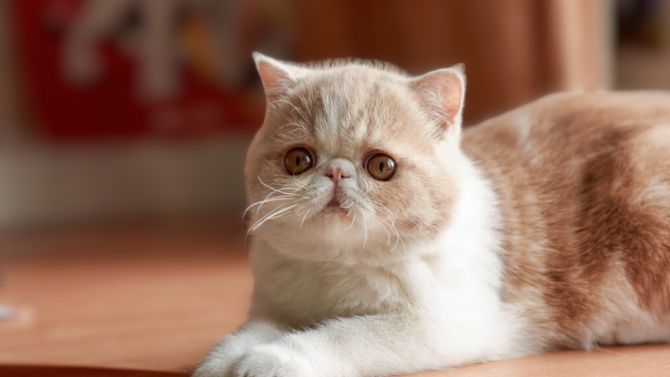
Some cats display symptoms that might make one think of Down Syndrome in humans.
Physical Anomalies
Cats with genetic disorders or congenital disabilities might exhibit physical anomalies such as:
- misaligned eyes
- other facial deformities
Additionally, they might have issues with their motor skills, making them appear clumsy or uncoordinated.
2. Behavioral Signs and Developmental Delays
Behaviorally, cats with genetic disorders might seem different from other cats. They could:
- be more lethargic
- show signs of cognitive delays
- have difficulty interacting with their environment or other animals
It’s crucial to note that these symptoms don’t necessarily indicate a genetic disorder; they could also be signs of other health issues or injuries.
Diagnosing Feline Genetic Disorders
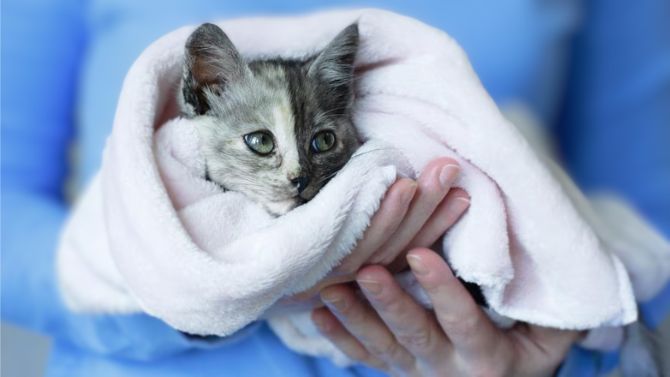
If you suspect your cat might have a genetic disorder or congenital disability, it’s essential to seek a professional diagnosis.
Veterinary Diagnosis
A veterinarian will typically start with a thorough physical examination, followed by a detailed medical history. They might also recommend genetic testing, X-rays, or other diagnostic tools to understand the root cause of the symptoms.
It’s essential to provide as much information as possible about the cat’s lineage, as this can offer clues about potential genetic issues.
The Importance of Genetic Testing
Genetic testing can be a valuable tool in diagnosing and understanding feline genetic disorders. By analyzing a cat’s DNA, veterinarians can identify specific mutations or anomalies that might be causing the observed symptoms.
This information can be crucial in determining the best course of care and management for the affected feline.
How to Take Care of Cats With Genetic Disorders?
Cats with genetic disorders or congenital disabilities require special care and attention. Here are some guidelines to ensure they lead a comfortable and fulfilling life.
Create a Safe Environment
Cats with physical or developmental challenges might find it hard to navigate typical household obstacles. It’s essential to create a safe environment for them.
This might include providing ramps, avoiding high perches, or using softer bedding to prevent injuries.
Do Regular Veterinary Check-ups
Regular veterinary check-ups are crucial for cats with genetic disorders. These visits can help monitor their health, catch potential issues early, and adjust care plans as needed.
It’s also essential to keep up with vaccinations and preventive care to protect these cats from additional health challenges.
FAQs
Are there specific breeds of cats more prone to genetic disorders?
While any cat can potentially have genetic disorders, certain breeds may be more predisposed due to specific breeding practices. It’s essential to research individual breeds and consult with breeders and veterinarians for more information.
How can I differentiate between a genetic disorder and a temporary health issue in my cat?
Temporary health issues often have sudden onset symptoms that may resolve with time or treatment. In contrast, genetic disorders are usually present from birth or early life and persist throughout the cat’s life.
Always consult a veterinarian for a proper diagnosis.
Are there any treatments available?
Treatment options depend on the specific disorder and its severity. While some genetic conditions might not have a cure, supportive care, therapies, and medications can help manage symptoms and improve the cat’s quality of life.
Can a cat with a genetic disorder live a normal lifespan?
Many cats with genetic disorders can live a full lifespan, especially with proper care and regular veterinary check-ups. However, the severity of the disorder and any associated health complications can influence their life expectancy.
How can I support my cat emotionally if it has a genetic disorder?
Cats with genetic disorders may benefit from extra patience, gentle handling, and positive reinforcement.
Providing them with a stable environment, interactive toys, and regular social interaction can also help in ensuring their emotional well-being.
Summary
While cats cannot have Down Syndrome in the exact way humans do, they can suffer from genetic disorders or congenital disabilities that might resemble the symptoms.
It’s essential to approach these cases with understanding and compassion, recognizing that each cat is unique.
Being informed about the potential challenges and needs of cats with genetic disorders is crucial for their well-being.
By understanding their condition, providing a safe environment, and ensuring regular veterinary care, you can ensure that your beloved friend leads a comfortable and happy life.

